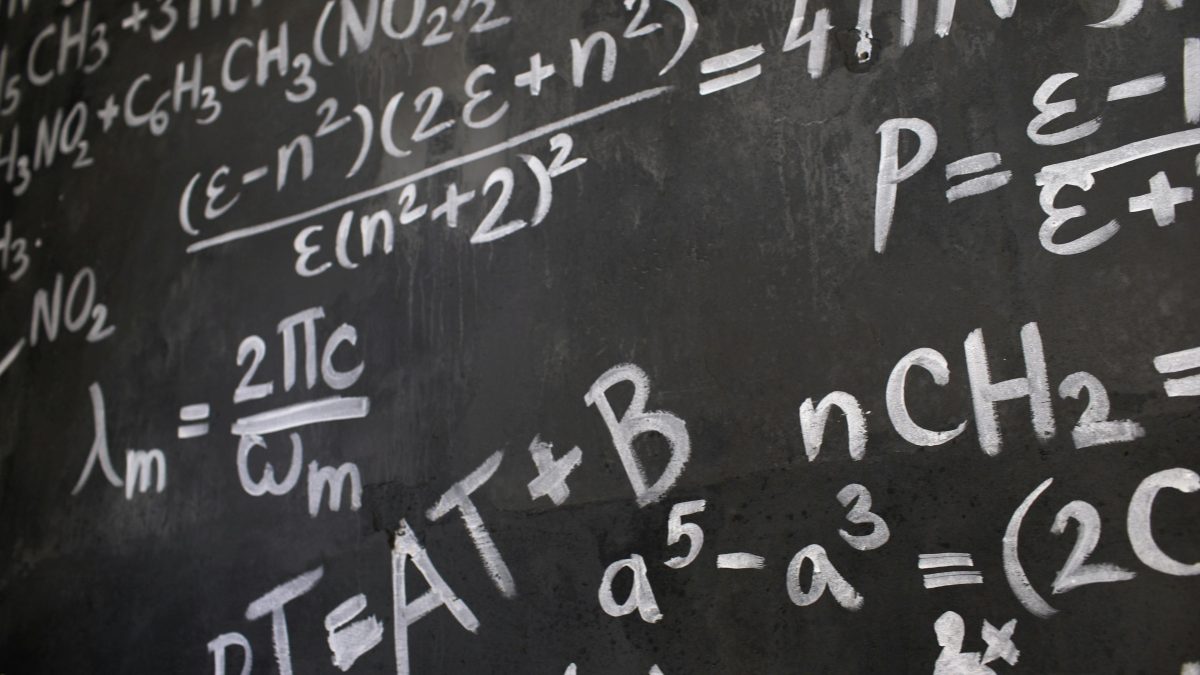Last Updated on: 14th July 2024, 08:54 am
Introduction to Hydration and Performance

Hydration, simply put, is the process of maintaining an optimal level of body fluids. It’s a cornerstone of health, pivotal for both physical and mental performance. Whether you’re an athlete pushing the limits, a professional juggling cognitive tasks, or someone navigating the demands of daily life, hydration plays a crucial role. This article aims to delve into the profound connection between staying adequately hydrated and enhancing performance across various spheres of life.
The essence of hydration transcends mere thirst quenching. It’s about optimizing your body’s functionality, ensuring every cell operates at its peak. In the realm of sports, adequate hydration can be the thin line between victory and defeat. For cognitive tasks, it’s the fuel that powers your brain, enabling sharper focus and quicker decision-making. Even in everyday activities, proper hydration is key to maintaining energy levels and overall well-being.
- Our journey through this article is designed to not only inform but also persuade.
- We’ll explore compelling evidence that underscores the critical relationship between hydration and performance.
- By the end, the message will be clear: to excel, in any aspect of life, hydration cannot be overlooked.
The Science of Hydration

Understanding Body Water Composition and Its Functions
Water, the elixir of life, constitutes about 60% of the adult human body. It’s a critical component of every cell, acting as a building block, a solvent for chemical reactions, and a transport medium for nutrients and waste. Water also regulates body temperature and lubricates joints. Essentially, it’s the oil that keeps the machinery of our bodies running smoothly.
How Dehydration Affects the Body Physiologically
Dehydration, even in its mildest form, can have profound effects. It reduces blood volume, making the heart work harder to pump oxygen and nutrients through the bloodstream. This can lead to fatigue, decreased endurance, and impaired thermoregulation. Our cooling system relies on sweat for heat dissipation; without adequate fluids, this system falters, raising the risk of heat stress and heatstroke.
The Role of Electrolytes in Hydration and Performance
Electrolytes, such as sodium, potassium, and magnesium, are pivotal in the hydration equation. They maintain the balance of fluids inside and outside of cells, ensuring that muscles, nerves, and organs function optimally. During intense physical activity or in hot climates, electrolyte levels can plummet, leading to cramps, dizziness, and even cardiovascular irregularities. Replenishing these vital minerals is crucial for sustaining performance and preventing dehydration-related setbacks.
In conclusion, understanding the science of hydration reveals its undeniable impact on physiological functions and performance. By staying hydrated and maintaining electrolyte balance, we empower our bodies to perform at their best, whether in athletic endeavors, cognitive tasks, or daily life activities. The message is clear: to achieve peak performance, hydration must be a priority.
Hydration and Physical Performance

Impact of Hydration on Muscle Function and Endurance
Hydration is not just about quenching thirst; it’s a critical factor in muscle function and endurance. Proper hydration ensures that muscles receive the oxygen and nutrients they need to perform, reducing the risk of cramps and fatigue. When our bodies are well-hydrated, we can push further, lift more, and endure longer.
Effects of Dehydration on Physical Performance: Studies and Evidence
Dehydration can significantly impair physical performance. Research shows that losing even 2% of your body’s water content can lead to noticeable decreases in physical abilities. This can manifest as reduced strength, speed, and stamina. Dehydration also affects cognitive functions, impacting decision-making and coordination, which are crucial in sports and exercise.
Strategies for Optimal Hydration Before, During, and After Physical Activities
- Begin by drinking water throughout the day, not just before exercise.
- During physical activity, sip small amounts regularly to replace fluids lost through sweat.
- Afterward, replenish not only with water but also with foods or drinks that contain electrolytes, aiding in the recovery process.
This strategy ensures that your body remains in a state of optimal hydration, ready for whatever challenge comes next.
Understanding the intricate relationship between hydration and performance can transform your physical capabilities. By prioritizing hydration, you empower your body to achieve peak performance, making every drop of water a step towards your personal best.
Hydration and Cognitive Performance

Exploration of Hydration Levels and Cognitive Functions
Hydration significantly influences cognitive functions such as attention, memory, and reaction time. When the body is well-hydrated, the brain operates more efficiently, fostering clearer thinking and better concentration. Conversely, even mild dehydration can impair cognitive abilities, making tasks that require focus or quick reflexes more challenging.
Review of Research Findings on Dehydration and Cognitive Performance
Studies have consistently shown that dehydration negatively affects cognitive performance. For instance, research indicates that a mere 2% loss in body fluids can result in noticeable declines in memory and attention span. Dehydration can also slow reaction times, akin to the effect of sleep deprivation. These findings underscore the importance of adequate hydration for maintaining mental sharpness and productivity.
Practical Tips for Maintaining Hydration
- Start your day with a glass of water to kickstart hydration after a night’s sleep.
- Keep a water bottle at your desk or workspace as a constant reminder to drink.
- Incorporate water-rich foods into your diet, such as fruits and vegetables, to boost fluid intake.
- Set regular drinking reminders on your phone or computer if you often forget to hydrate.
- Monitor your urine color as a gauge of hydration; aim for a pale straw color.
By integrating these simple practices into your daily routine, you can ensure that your hydration levels are optimized, supporting your cognitive functions and enhancing overall productivity.
Assessing and Managing Hydration Levels

Methods to Assess Hydration Status
Understanding your body’s hydration status is crucial. Simple indicators such as urine color, thirst, and changes in body weight can provide valuable insights. Ideally, your urine should be a pale straw color, indicating proper hydration. Experiencing thirst is often a late sign of dehydration, signaling that your body is already in need of fluids. Additionally, significant changes in body weight, especially after exercise, can reflect water loss that needs replenishing.
Daily Hydration Requirements
Hydration needs vary widely among individuals, influenced by factors such as climate, activity level, and health status. While the general recommendation is to drink eight 8-ounce glasses of water a day, this may not suffice for everyone. Those in hot climates or engaging in vigorous physical activity may require more to offset increased fluid loss. Similarly, certain health conditions necessitate adjustments in fluid intake to maintain optimal hydration.
Hydration Strategies
Choosing the right fluids is paramount. While water is the most straightforward way to hydrate, other beverages and even water-rich foods can contribute to your daily fluid intake. Fruits and vegetables, for instance, are not only nutritious but also high in water content. Understanding the role of these foods can add variety to your hydration strategies, making it easier to meet your body’s needs. Remember, staying hydrated is not just about drinking water; it’s about making smart choices to support your body’s overall fluid balance.
By paying attention to hydration cues, understanding personal needs, and employing effective strategies, you can ensure that your body remains well-hydrated. This, in turn, supports optimal performance in all areas of life, from physical endurance to cognitive function.
Challenges and Misconceptions about Hydration

Common Myths about Hydration and Performance
- 8×8 Rule: The belief that drinking eight 8-ounce glasses of water daily is optimal. Reality: Needs vary by activity level and environment.
- Sports Drinks vs. Water: The misconception that sports drinks are always better. Reality: They can add unnecessary calories and sugar for the average person.
Overhydration: Recognizing and Avoiding Hyponatremia
- Overhydration Dangers: Excessive water intake can lead to hyponatremia, diluting blood sodium levels.
- Symptoms: Include nausea, headaches, and in severe cases, seizures.
- Prevention: Listen to your body and drink when thirsty, especially during prolonged activities.
Addressing Barriers to Adequate Hydration
- Elderly: Reduced thirst sensation can lead to inadequate fluid intake.
- Athletes: May overlook hydration due to focus on performance.
- Workplaces: Limited access to water or high-paced environments can hinder hydration.
- Strategies: Setting reminders or improving access to water sources can help.
Understanding these challenges and misconceptions is crucial for maintaining hydration and enhancing performance. By debunking myths and recognizing the signs of both dehydration and overhydration, individuals can make informed decisions about their fluid intake. This knowledge is essential for achieving and sustaining peak performance in any activity.
In Closing
Hydration fuels peak performance. It’s the foundation of both physical prowess and cognitive sharpness, enabling individuals to excel in every endeavor. By understanding the delicate balance between hydration and dehydration, we unlock the potential for enhanced endurance, focus, and overall well-being. This article has illuminated the path to achieving optimal hydration, emphasizing the importance of recognizing personal hydration needs and adopting effective strategies. Let’s commit to prioritizing hydration, a simple yet profound step towards unlocking our full potential.
The Relationship Between Hydration and Performance FAQs
Yes, dehydration can significantly impact cognitive function, including concentration, alertness, and decision-making skills. Even mild dehydration can impair cognitive abilities, affecting reaction times and judgment, which are vital for strategic thinking in sports. Maintaining hydration is essential for preserving cognitive functions that contribute to sports performance and safety.
Yes, hydration can affect mental performance, including memory, attention, and concentration, in academic or work settings. Even mild dehydration can lead to difficulties in focusing, cognitive fatigue, and a decrease in alertness. Ensuring regular fluid intake throughout the day can help maintain cognitive function and productivity.
While water is generally sufficient for hydration, the type of fluid can matter, especially during prolonged or intense exercise. Sports drinks containing electrolytes and carbohydrates can be beneficial for maintaining energy levels and replacing lost salts, which water alone may not provide. However, it’s important to choose drinks wisely to avoid excessive sugar and calories that are not needed for hydration purposes.
Hydration strategies for endurance sports should include pre-hydration, maintaining hydration during the event, and rehydrating afterwards, with a focus on balancing electrolyte levels. Drinking fluids with electrolytes can help prevent imbalances that may lead to cramping or hyponatremia. Tailoring fluid intake to individual sweat rates and environmental conditions can help optimize performance and safety during endurance activities.
Monitoring hydration status can be done by paying attention to the color of urine, which should be light yellow, and tracking the frequency of urination. Weighing oneself before and after exercise can also indicate the amount of fluid lost and the need for rehydration. Additionally, being aware of symptoms of dehydration, such as thirst, dry mouth, and fatigue, can help individuals gauge their hydration needs.
Proper hydration is crucial for optimal physical performance as it affects the body’s ability to regulate temperature and maintain blood volume. Dehydration can lead to fatigue, decreased coordination, and muscle cramps, making it harder to perform at your best. Staying hydrated ensures that your body can effectively cool itself through sweat and maintain a balance of electrolytes necessary for muscle function.
Adequate hydration is key to recovery after exercise as it helps to replenish fluids lost through sweat, supports metabolic processes, and aids in the repair of tissues. Dehydration can delay the recovery process by impairing muscle repair and glycogen replenishment. Ensuring proper hydration post-exercise is crucial for reducing muscle soreness and preparing the body for the next workout.
Yes, there can be differences in hydration needs between men and women, largely due to differences in body composition, size, and hormonal fluctuations. Women may require different hydration strategies, especially during menstruation or pregnancy, when fluid needs may increase. However, the basic principles of hydration apply to both genders, with the need to adjust based on individual circumstances and activity levels.
Athletes should aim to consume approximately 7-10 ounces (about 200-300 milliliters) of water every 10-20 minutes during exercise, depending on the intensity and duration of the activity. The exact amount can vary based on individual needs, environmental conditions, and sweat rate. It’s important for athletes to personalize their hydration strategies to prevent both dehydration and hyponatremia, which can occur from overhydration.
Hydration plays a critical role in preventing heat-related illnesses by helping to regulate body temperature and maintain blood circulation. Adequate fluid intake allows the body to sweat and cool down effectively, reducing the risk of heat exhaustion and heat stroke. It’s particularly important to stay well-hydrated in hot and humid conditions, where the risk of heat-related illnesses is higher.
Orlando is a all round athlete from Australia, now resident in Germany. His sports of passion of American Football(Offensive line), weight training and indoor rock climbing where he uses his 195cm wing span to his advantage.



